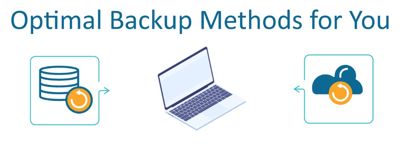Why Choose NAS Over Cloud Backup ?
By Tim Li, technical writer at Buffalo America
This is a Press Release edited by StorageNewsletter.com on June 10, 2022 at 2:01 pm This article was written by Tim Li, technical writer, Buffalo Americas, since 2012, and based in Austin, TX.
This article was written by Tim Li, technical writer, Buffalo Americas, since 2012, and based in Austin, TX.
Despite the obvious reasons, many users still don’t routinely backup their servers or computers, leading potentially devastating data loss events.

No matter what kind of files you are working with, backup is essential. While many prefer the convenience of cloud backup, it may not best suit your needs. After all, there are many benefits of local backup that cloud backup can’t afford, which is why the using NAS as a backup solution may be a much better fit for your backup needs.
Cloud Storage vs. Cloud Backup
It is important to distinguish between cloud storage and cloud backup services. While both services store your data online, cloud storage is when you move data on your device into a cloud-connected folder so that it synchronizes with your cloud container, while cloud backup does not require that. Instead, a cloud backup agent application usually directly uploads your data to a cloud repository. This is an important distinction to make.
While many people use cloud storage services such as Dropbox or Google Drive to store and backup their data, these cloud storage services do not offer the best security vs. cyberthreats. Also, unlike a dedicated cloud backup service, cloud storage is not best suited to file recovery or restoration should data loss occur.
Why Do Users Choose Cloud Backup Services?
Many people enjoy using cloud backup for its simplicity, as well as affordability. Like many cloud services, users typically pay a subscription fee for a specific capacity amount. Cloud backup services usually require the user to download a backup agent application onto their computer or file server so they can initiate or configure scheduled backups. Users can also generally recover their data without incurring more than the subscription cost, regardless of what caused the data loss.

However, cloud backup services do have their drawbacks. One of the biggest disadvantages is the speed – even with high broadband speeds the data transfer can get sluggish, especially when backing up a full HDD. While there are backup options to mitigate backup data size (such as choosing incremental backups or differential backups), transferring tens or hundreds of gigabytes to the cloud will take its toll on your network, and not to mention possibly your server itself depending on the application.
The other disadvantage is a security one. It is a well-known fact that cloud containers will run into security issues, and once you backup your data to the cloud, it is under the mercy of the service provider, with you having little control over its storage or protection. On the flip side, the backup agent application can present a security threat itself. If you accidentally neglect to install timely updates, or if the application has any known vulnerabilities for threat actors to exploit, you may inadvertently expose data on your server to cyberthreats such as ransomware.
Benefits of Local Backup Using NAS
Instead of dealing with subscription fees and potential data security issues, users can consider NAS devices as a secure and cost-effective storage and backup solution, with the primary advantages being flexibility and security. A NAS rides the line between local storage and cloud storage, and gives the benefits of both

While NAS setup can be more complex than cloud, and the initial hardware cost can be more expensive, at the end of the day you will own your own storage and backup infrastructure, and calibrated to suit your needs. Buffalo NAS also comes with partially-populated options where only some bays come with drives during the initial purchase, so you can get the hardware at a low cost and expand the capacity later as you see fit, while bypassing monthly cloud costs.
You can connect multiple servers to a NAS and have it set up as a local backup location for scheduled automatic backups. Even while wireless, NAS offers the speed of local data transfers that far surpasses cloud uploads. Depending on the NAS, you can use USB connectivity for large backup or restore operations. Buffalo NAS devices also come with native 2.5GbE or higher ports so you can enjoy higher data speeds if your network is equipped to handle it. In the event of a data loss event such as HDD failure or ransomware attack, you don’t have to wait days or even weeks to build a new drive and try to pull backup data from remote servers. Just simply move your backup data from the NAS to the server and bypass extended downtime.
The other side of the coin is security. NAS can offer better data security and protection than an online cloud service. Most NAS will be equipped with RAID for redundancy, so the system can tolerate a HDD failure. You can also air gap a NAS for an additional layer of protection, isolating it from the rest of the network to bypass potential exposure to cyberthreats. Buffalo NAS will also offer additional backup options such as cloud integration and offline replication so you can further protect your data.
As an additional protection layer, Buffalo NAS run on closed system that prohibit third-party applications, thereby protecting your device from potential application vulnerabilities.
Buffalo NAS Backup Solution
If you are using or considering cloud backup services to backup your data, a Buffalo NAS can be an alternative. It can potentially act as your own private cloud storage and backup that will meet your needs on a far more granulated level, while offering flexibility and reliability that may possibly reduce costs while enhancing security.
Buffalo NAS are purpose-built for SMB in mind to provide secure and cost-effective storage and backup solutions. In addition to flexible product offerings, Firm’s technicians are on hand 24/7 in North America to help advise you on the right backup strategy. Buffalo has 4 decades of networking and computer peripheral manufacturing and design experience.














 Subscribe to our free daily newsletter
Subscribe to our free daily newsletter

